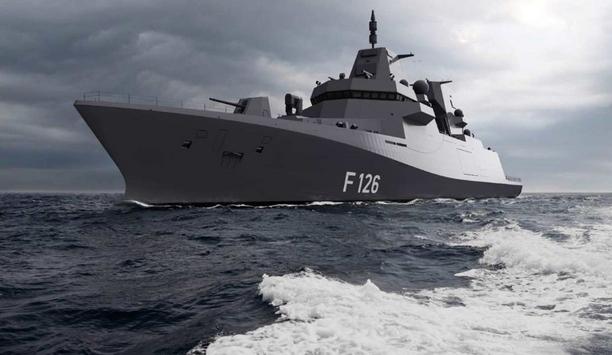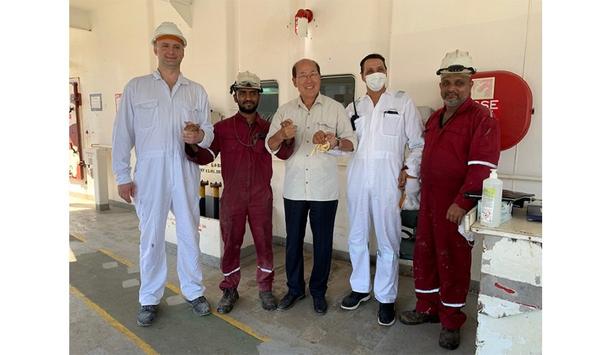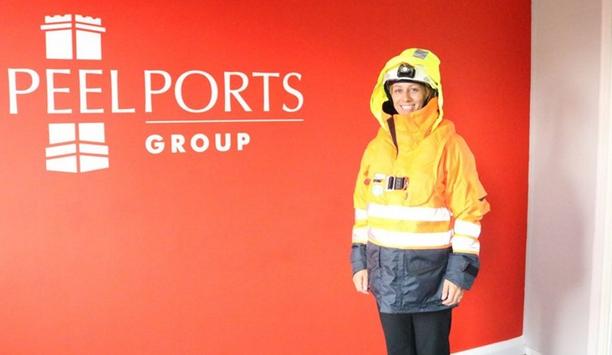Inmarsat, the pioneer in global, mobile satellite communications, launches Fleet Safety to modernise safety communication and improve safety standards in global shipping. Several years in the making, and a successor to the maritime safety service, Inmarsat C, the formal launch follows the successful conclusion of Fleet Safety sea trials.
Fleet Safety was granted International Maritime Organization (IMO) approval under Global Maritime Distress and Safety System (GMDSS) requirements following the assessment by the International Mobile Satellite Organisation (IMSO).
New safety service
Following the launch of RescueNET and SafetyNET II, Inmarsat has updated documentation and created training material to ensure the industry is ready for the new safety service. In addition, Inmarsat has added Fleet Poll a new data reporting service for Long Range Identification Tracking (LRIT), Vessel Monitoring Systems (VMS) and asset tracking as well as Ships Security Alert System. The next stage is to gain Flag State approval for adoption across the maritime industry.
The next stage is to gain Flag State approval for adoption across the maritime industry
Peter Broadhurst, Senior Vice President of Safety and Regulatory, Inmarsat Maritime, said “To this day, Inmarsat C forms the backbone of the GMDSS, with more than 100,000 marine terminals having safeguarded the lives of seafarers for over 30 years. However, as we move further into the digital era of shipping, technology can be used for enhanced safety and also provides new ways of tackling emerging challenges. The launch of Fleet Safety marks a turning point in the way satellite communications ensure the preservation of life at sea.”
Access critical functionality
Delivered via existing FleetBroadband or Fleet One voice and data services with the addition of a Maritime Safety Terminal, Fleet Safety offers unrivalled network availability and global coverage. Its new interface is also optimised for usability, making it easier for seafarers to access critical functionality and communicate with Maritime Rescue Coordination Centres (MRCCs) in an emergency. Now, a network of over 60+ global MRCCs can be contacted by voice or instant messaging at the touch of a button, in seconds.
Fleet Safety also includes an innovative Maritime Safety Information (MSI) interface and a Distress Chat function. The MSI feature allows users to control the stream of MSI broadcasts and download historic broadcasts, which include meteorological, navigational, and search-and-rescue warnings.
Maritime distress communications
Inmarsat has also invested in training seafarers, to help them realise the solution’s full potential
Meanwhile, the Distress Chat capability enables the creation of chat rooms between ships in distress, assisting vessels and MRCCs for quicker response/resolution times.
Given the functionality and features available to Fleet Safety users, Inmarsat has also invested in training seafarers, to help them realise the solution’s full potential. Going above and beyond user instruction, the approach aims to educate crews on the importance of being proactive in maritime distress communications.
Meeting stringent requirements
“In a precarious situation, notifying rescue authorities early can prove pivotal in saving the ship and, more importantly, the lives of the crew on board,” said Broadhurst. “Seafarers will generally do their utmost to rectify an issue before requesting assistance, but Inmarsat’s Fleet Safety facilitates a culture for personnel to report situations early, rather than wait until events get beyond their control.”
Maritime safety is part of Inmarsat’s DNA. The company was founded in 1979 by the IMO to establish a satellite communications network for protecting the lives of seafarers. With the launch of Inmarsat C in 1991, it became the first satellite operator to meet the stringent requirements of the IMO’s GMDSS – a set of marine safety procedures that Inmarsat helped to define – for ship security alert systems.











